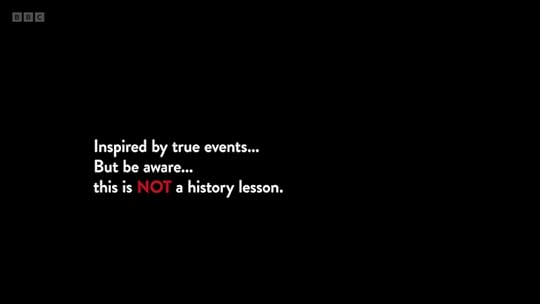Fact and fiction

Note: minor spoilers for the 1982 film Who Dares Wins.
History buffs often complain when a work of fiction isn’t historically accurate. I made that complaint about the film Who Dares Wins a while ago, and was told that everybody understood it was fiction, and that nobody would treat it like a documentary. Like a lot of historical fiction, the film depicts an entirely made-up scenario. But it features real life organisations, and the film makers strived for some degree of realism. It isn’t always clear where the line between realism and fiction is drawn.
In one scene, an SAS officer sits calmly while men burst into the room and shoot target dummies on either side of him. That’s a reasonably accurate depiction of SAS hostage rescue training at the time. Later, the same officer claims that deaths in training are accepted, as long as they don’t go over their quota. Still later, he says that he’s been in the SAS for six years, and he’s “SAS or nothing”. There is, and never has been, any such quota, and officers join the SAS for three years, then go back to their regiments.
Most people won’t know which parts are realistic and which aren’t. They probably don’t care, and there’s no reason why they should — it’s fiction and entertainment, not a documentary. So if we know it’s fiction, and we should take it all with a grain of salt, there’s no harm, right? The trouble is, the human brain isn’t very good at citation management. We hear things, or read things, and the brain remembers them, but doesn’t always remember where each piece of information comes from.
I once talked to someone that was convinced that deaths in training were accepted in the SAS, and another person who believed that officers join permanently, not just for three years. Both people were interested in, and reasonably well informed about, the Cold War British Army. Presumably they both got those ideas from this film, but they obviously didn’t realise that — neither of them would ever have considered a film to be a reliable source. But the brain doesn’t keep citations, and so inaccuracies get stored alongside accurate information.
No doubt viewers of the recent BBC series SAS Rogue Heroes base most of their perception of SAS operations during the Second World War on that programme. Maybe it will spark an interest in a few, and they will go on to read more factual accounts. But most of them won’t care, and that’s not unreasonable.
I’m not suggesting that entertainment, even when based on real historical events, should be held to the same standards as a documentary. But we need to understand and acknowledge that any fiction we read or watch will influence our perception of the events depicted. Most of the time the worst that will happen is that we’ll look foolish if we make a false claim, but it’s something that we should always keep in mind.



